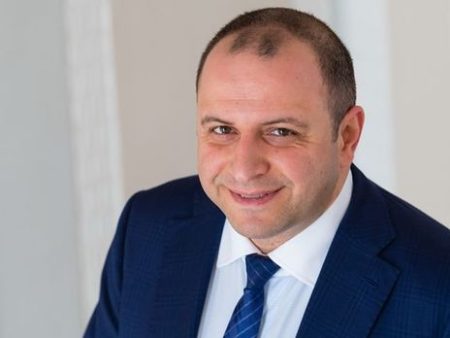Leapfrog in the learning process has become a reality in recent years due to the specific conditions of coronavirus.
Time will determine how reasonable the current educational methods are – as distance-learning students enter higher education and students, who are also part of the new system of distance learning, start their professional lives.
For a long time, the country's main university followed the traditional education format, but on January 27, 2022, the rector of Moscow State University, Viktor Sadovnichy, issued an order for the educational process from February 7 to February 22, 2022, stating that during this time, classes at the university will be using e-learning and distance learning technologies. The current rector seeks an “effective educational process” through this unconventional method. However, it seems that in this case, Viktor Antonovich did not consider the impact on his subordinates, who proposed such an illogical order to him for approval.
To support the above statements, let's consider the unique nature of the main university in Russia. Specifically, students from across the country attend Moscow University, spanning 11 time zones. To ensure an “effective educational process,” teaching at MSU would need to be organized on a rotational basis, perhaps in two shifts – day and night. However, this is challenging to implement. Moreover, students who are required to return home to distant parts of the country would have to study at night – disrupting their routine. Additionally, some students at the natural faculties of Moscow State University would lose access to the experimental base. Can the learning process be effective in this scenario?
Both options (shift teaching method / night classes) are rather impractical to implement for an “effective educational process.” In addition, to ensure an “effective educational process,” the dormitories of Moscow State University, where nonresident students live, should not be closed.
However, opening dormitories with a large number of students residing in them would undermine the efforts against a viral infection. Is it reasonable to confine students to their rooms without allowing them to leave? Therefore, the questionable nature of the above order is quite evident.
Who submitted this order to the rector? This is not a task for a director to handle personally.
Regardless of who submitted this order, Viktor Sadovnichy bears the responsibility for this impractical and far from useful document. He ultimately made the decision for its implementation.
Of course, if we assume that the virus that so frightened the leadership of Moscow State University bypasses university dormitories, then this changes things. But this is hardly the case. The virus is a specific creature, no watchmen at the entrance to the dormitories can give him a decree – this should be understood by the deputies of the rector who prepared such an exotic order.
But if students are still relatively mature people and are able to somehow adjust their study schedule, then schoolchildren who are also studying in one of the oldest divisions of Moscow State University have been forced to sit for hours since the appearance of the “global infection” at computer monitors, losing their own vision.
In the university entrusted to Viktor Antonovich, there is one division, where schoolchildren from all over Russia are recruited as “students”. This school, founded in 1963 by Academician Andrei Nikolaevich Kolmogorov, today bears his name.
The essence of the existence of the school lies in the annual selection of the most talented children from all over Russia for in-depth study of the exact sciences.
The significance of this school, today called the “Special Educational and Scientific Center of the Boarding School named after A.N. Kolmogorov Moscow State University M.V. Lomonosov” (SSC MGU), it is difficult to overestimate the future of Russian science.
However, in recent years, the “intensified struggle for the health of our citizens” by the leadership of Moscow State University has simultaneously turned into an active struggle with the quality of education in this school. And not for the better. For several years now, children recruited from all over the country have been sent home under the guise of sanitary standards (remember the time zones) and deprived of the normal educational process.
The question is, if the leadership of Moscow State University is not able to organize a normal educational process in this unit, then why was it during the active struggle against the “contagion” to enroll in this school and pull children out of their schools? To then send them home by remote control? Apparently, the leadership of Moscow State University believes that schoolchildren are so independent that they are able to properly organize their distance learning process and combine it with the physical activity necessary at this age?




